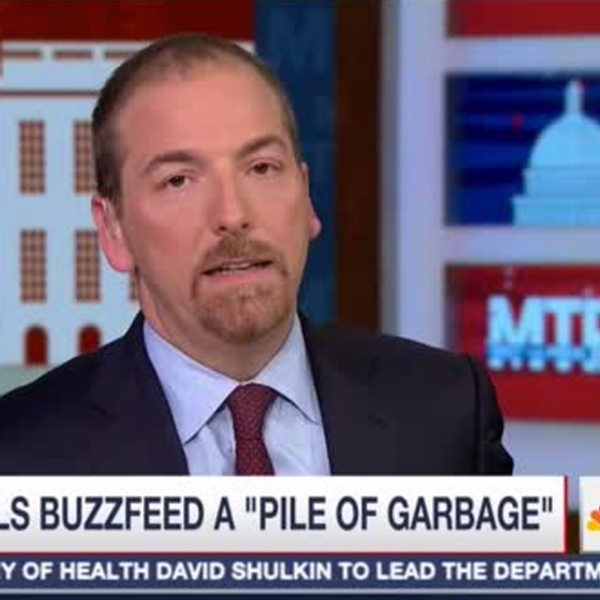Thousands of shares, videos, articles, comments, likes followed by countless death threats but no investigation, no physical evidence, no eyewitnesses, no criminal complaint or testimony from a victim… Yes, I’m talking about the trending conspiracy theory/greatest scandal in recent American history??, #PIZZAGATE.
Thousands of people are convinced that a pedophilia ring involving people at the highest levels of the Democratic Party is operating in a Washington pizza restaurant owned by James Alefantis, who is a Democratic Party supporter. Nearly a million messages were sent on Twitter last month using the term "pizzagate." Even almost a month after the elections, allegations are still very alive on the internet. Coverage of Pizzagate by mainstream media as fake news only contributes to its popularity since the alt-right accuse them of siding with the Democratic Party and trying to cover up the scandal.
#Pizzagate is only one example of how fake news quickly spread by social media can deeply affect both politicians and ordinary citizens. In fact, this is not only a concern for American politics; it is becoming a global trend, distorting politics all around the world. The Guardian has recently published an article investigating the impact of fake news in countries like Germany, Italy, China, Brazil and many more. (https://www.theguardian.com/media/2016/dec/02/fake...) Misinformation is seen as a serious threat to the democratic process.
A 2016 Pew Research Center survey about digital news audience revealed digital news sources to be second only to television as the most frequently accessed type of media source. Nearly four-in-ten U.S. adults (38%) said that they often get news from digital sources, including news websites or apps (28%) and social networking sites (18%). According to the survey, in total a majority of U.S. adults – 62% – use social media in order to get news. (http://www.journalism.org/2016/06/15/digital-news-...) This is a big number and it is growing. The numbers show that the impact of the internet on journalism is more relevant than ever.
The accessibility and availability of internet allows an ordinary citizen not only to report but also to create news in order to influence politics. There is no actual accountability so manipulating the truth becomes much easier with the internet and the line between opinion and fact gets blurred. Ideologies and opinions very much influence the reporting of news and balanced judgment gets lost in the sea of extreme thoughts. But more importantly, these fake or unfact-checked news spread in an unbelievable speed and reach millions of people. In an ever-connected world speed can take precedence over truth and a careless tweet by a private citizen can even grow to threaten the lives of innocent people.
Internet certainly has these effects on journalism but at the end it is a neutral medium, not discriminating against any accessors. It is simply an accelerator, amplifying both the good and the bad. Internet is democratizing media and despite its downsides, overall I would argue that it is actually improving journalism. I would even go further to say that it is a revolutionary technology in that sense. News editors and governments are no longer the gatekeepers to information because costs of distribution have almost completely disappeared. Social networking services such as Facebook and Twitter provide a snapshot of events happening around the world from the viewpoint of first-hand witnesses. With internet, ordinary citizens offer analytical perspectives from the ground faster than print or television can provide. Not only internet has allowed many alternative news sources to emerge, but it also benefitted the mainstream media. Many popular newspapers or news websites are seeking for citizens’ opinion or even reporting on the ground in remote or conflicted areas, where it is hard for journalists to get to in a short time.
With broadcast and print media space is limited. You can only show a certain amount of news on daily news programs because you can’t usually present multiple news at the same time on the same news channel. Although print media is a little more advantaged in that sense, you still have limited amount of paper and a newspaper is published once in day so without the internet you would have to wait 24 hours to learn about the news. That is why you have to be selective around what to report and what not to. This selection process is of course very much influenced by politics, ideologies and money.
In less democratic countries governments certainly has a great influence on mainstream print and broadcast media because of censorship. With internet news spread so fast that censorship becomes futile. Ideology is another factor on this selection process but I would say that it is also a factor in internet journalism. The reporters are humans and humans have opinions, so news will inevitably be affected by ideologies. In that sense, mainstream digital and print media could be better because extreme views are avoided in order to address a larger audience. However; this points out to another problem. They want to address a larger audience because they want to increase the sales or ratings and get more advertisement, make more money. Their concern for profit gets ahead of their concern for integrity and bravery in journalism.
Either because of fear of censorship or concern for profit, mainstream media chose not to report many important events and stories. If we haven’t had access to Internet many of those important stories would be lost in history without being noticed and I can give many examples for such cases both from Turkey and United States. While mainstream media focused on the terrorist acts of PKK(the Kurdish separatist group in Turkey) and number of martyrs, it ignored the civil war happening in the Kurdish region of Turkey and the deaths of many civilians as a result of it. I tried to follow the news from a Kurdish news page on Facebook. Some may argue that this page could also be biased, but at least I had both perspectives. Internet becomes even more important with human stories. This summer a transgender woman activist was raped and brutally burnt to death in Turkey. I learned about this on alternative progressive internet news sources. It was regarded as “worth reporting” on mainstream print and broadcast media couple of days after the incident. If it didn’t spark an outrage on the internet, I doubt that they would consider reporting it. These are some recent examples but without a doubt the most memorable event where internet journalism became crucial was Occupy Gezi Protests. On the first days of protests mainstream media chose to broadcast a penguin documentary instead of reporting a breakthrough moment in recent Turkish history. Everyone could learn what was really going on thanks to Twitter and Facebook.
United States is no different. One of the most recent examples is the Standing Rock Pipeline Protests. For a long time, mainstream media ignored what is going on in Standing Rock Indian Reservation. Either they didn’t care about Native Americans or they didn’t like what was going on there. The police brutality, unlawful actions and the bravery of hundreds of people of all backgrounds joining the resistance force were reported through alternative internet news sources and through social media with personal accounts from the people protesting there. Use of water cannons on the water protectors at Standing Rock, despite below freezing temperatures were reported through videos of ordinary citizens. Several mainstream media outlets, including CNN, repeated a statement from the Morton County Sheriff’s Office that the water protectors were armed, and the water cannons were used to put out fires they had started, yet the evidence captured on video shows otherwise. Even now the coverage isn’t enough. Mainstream broadcast media could talk about a silly tweet from Donald Trump for hours and cover the pipeline protests for ten minutes.
Like everything else, internet can be harmful when it is in bad hands. Spread of fake news is a serious problem which has come out as a result of great accessibility of internet. However, noticing and correcting the fake news is also possible with the speed and accessibility of internet. Internet has brought journalism into a whole new level and even journalist working in print or broadcast media would agree with me. They are all using internet sources to learn what’s going on both in the country and in the world. While mainstream media has always been the voice of government and corporations, internet has become the voice of people!





















